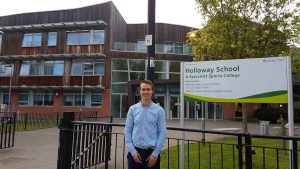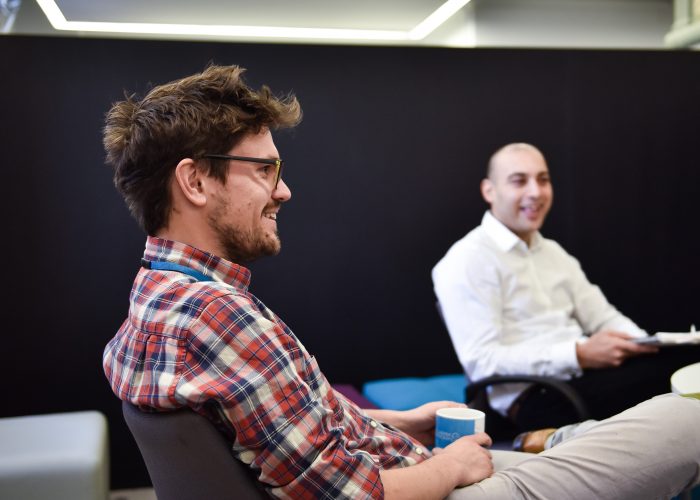 Matt Cooper, ICHP Innovation Advisor, discusses how his experience has prompted him to increase his engagement in his local community…
Matt Cooper, ICHP Innovation Advisor, discusses how his experience has prompted him to increase his engagement in his local community…
(This article first appeared in the On Purpose blog, on Thursday 10 May 2018)
“How engaged am I as a citizen?”
“What sort of social impact am I having in my local area, and could this be increased?”
Since starting the On Purpose programme, and prompted by the six months I spent working for the National Citizen Service (NCS) Trust, I have been asking myself these questions. The NCS programme is doing a fantastic job in helping teenagers transition to adulthood, and in doing so looking to improve social mobility, social cohesion and civic engagement in this country, but what are the adults doing?
Whilst I am aware of the social, political and economic questions facing society today, and I do exercise my democratic rights on voting day, I realised I am otherwise a somewhat distant observer. And I doubt I’m the only one. I recently read a quote from Our Synthetic Environment by Lewis Herber, asserting that:
“The city man in a modern metropolis has reached a degree of anonymity, social atomisation and spiritual isolation that is virtually unprecedented in human history”
Although this was written in 1962, I think it rings truer than ever of the average city dweller today, especially of Londoners. I feel that as we become more and more attached to our smart phones, we have become less and less engaged with the real world. I was keen to do something about this, so I looked up, away from the screen, and sought to take action.
I was inspired by a specific event during my time working for NCS, when I facilitated an interactive afternoon between a group of teenagers and older people at a community centre in Lancashire. Despite the natural awkwardness in the first exchanges, I left the centre amazed at how deep a bond could form in such a short period of time and how such simple activities, such as batting a balloon amongst the group and having a communal sing-song, could bring such joy and enlivenment.
It also made me realise how, outside of my family, I had hardly spent any meaningful time with either of those two groups for well over ten years. Any interactions I had were either tutting at deemed teen disrespectfulness or harrumphing at my elders’ tube station dawdling. Hence, I decided to carve out time to focus on improving my own level of engagement. To this end I have spent the last three months volunteering as a secondary school mentor with ReachOut in my local borough of Islington. The charity works with young people from disadvantaged communities to help them improve academic skills and key character traits around self-control, staying power, good judgment and fairness. It is challenging work, but the impact is immediate. Each week the students leave in much higher spirits than when they arrive, keen to build on what they have learnt. In a world where levels of human interaction are declining, and where teachers are sometimes the only figures of the working world the students are exposed to, it is a great feeling to serve as a role model to these teens.
My second initiative begins in a few weeks, when I will start volunteering with North London Cares, a network who bring young professionals and older neighbours together in the local community. I hope to provide conversation, friendship and a different perspective to the older residents of my borough, and in doing so reduce the feeling of social isolation, in what I anticipate will be a mutually beneficial exchange. I am particularly interested in trying to break down the preconceptions which exist today, which I feel are held by both groups, and foster a greater sense of cross-generational togetherness.
In terms of how to get involved, as well as looking for opportunities in your local area (here’s a good place to start), there are many easy things you can do which don’t involve a huge time commitment. The first is to visit your local library. The likelihood is that most urbanites live no more than fifteen minutes from a library. Staggeringly, many do not realise that library services are free. Whether it be borrowing books, or simply going in for a chat, these are great community spaces. The second is to linger a little when you drop into your local internet cafe. Whilst many people see these places as annoying detours when forced to print off gig tickets, many are in fact bustling community spaces. The computer suite often plays host to people searching for jobs, and 20 minutes’ worth of computer literacy support can go a long way. Other great places to strike up social connections include food banks, community centres and lunch clubs. My final suggestion is, shock horror, to talk to people on buses and trains. This one doesn’t need a lot of explanation and it may defy social protocol, but hey, try it. For every four people that avert their eyes, I bet one will smile and interact with you.
After reflection of my personal volunteering experience, I can only recommend everyone to consider giving up an hour or two every week for a good cause. What you achieve through one hours’ volunteering is absolutely worth the effort, and I think a boon for one’s own well-being and self-confidence. Just give it a try!



